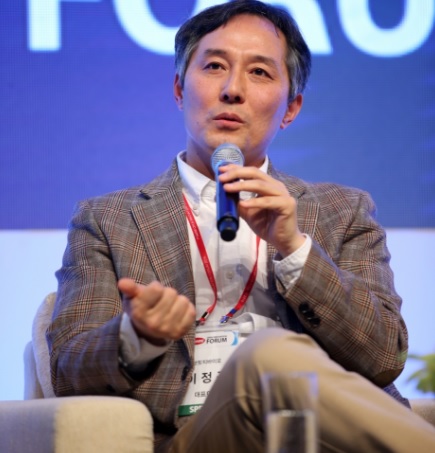Biotherapeutics has obtained approval for its investigational new drug (IND) plan to conduct the phase 1.2 clinical trial of the fourth-generation EGFR-mutant non-small cell lung cancer targeted agent, BBT-207, from the U.S. Food and Drug Administration.

Bridge Bio said in a public filing on Monday that it won the FDA’s nod last Saturday (local time).
The company will conduct clinical trials on up to 92 NSCLC patients at 15 to 20 medical institutions in Korea and the United States to confirm its treatment's safety, drug resistance, and anti-tumor efficacy.
It will determine recommended capacity range through the capacity rise test in phase 1a trials and determine the recommended phase 2 dose (RP2D) for phase 2 in phase 1b trials. After that, it aims to enter the phase 2 capacity expansion test.
In the capacity expansion test phase, the company plans to evaluate the drug’s preliminary anti-tumor activity by measuring its objective response rate (ORR) based on the RACIST (response assessment criteria in solid tumors) version 1.1.
The clinical trial period is 60 months from the approval date and is expected to end in August 2028.
BBT-207 is a fourth-generation epidermal growth factor receptor tyrosine inhibitor (EGFR TKI), which selectively inhibits mutations of various spectrums, including C797S-positive double mutations that occur after the treatment with the third-generation EGFR inhibitors in NSCLC patients.
BBT-207 is a candidate substance developed independently to cope with diversifying NSCLC treatments more quickly. It is different from BBT-176 being developed to target existing C797S-positive triple mutations. With the latest approval for IND, Bridge Bio will develop two clinical phase tasks in lung cancer treatment.
At the recent AACR 2023, the annual conference of the American Association for Cancer Research, Bridge Bio made the poster presentation of the preclinical data of BBT-207. Through in vivo and in vitro studies, the company explored BBT-207’s anti-tumor efficacy in EGFR mutations of NSCLC, including C797S double mutations.
“As the company that has developed the fourth-generation targeted agent of lung cancer that has entered the clinical trial for the first time based on the FDA approval, I think it is significant to add BBT-207 to lung cancer pipelines in clinical stage,” CEO Lee Jeong-kyu said. “We will step up the development of new drugs by using the two tasks as a pillar in lung cancer pipelines and make additional efforts for negotiations to produce results that optimize these drugs’ value.”
Bridge Bio has completed the tests of the major capacity group as part of its phase 1 clinical trial of BBT-176 targeting C797S triple mutations and is exploring the recommended capacity for phase 2 with additional capacity expansion test groups.
Related articles
- 'Bridge Biotherapeutics committed to expanding cancer, fibrosis pipeline'
- Bridge Bio fails to prove ulcerative colitis drug’s efficacy in phase 2a trial
- Bridge Biotherapeutics, Pinotbio join hands to develop cancer therapeutics using ADCs
- Bridge Biotherapeutics discards NSCLC drug candidate BBT-176
- Bridge Bio starts phase 1/2 clinical trial of EGFR-TKI for NSCLC

